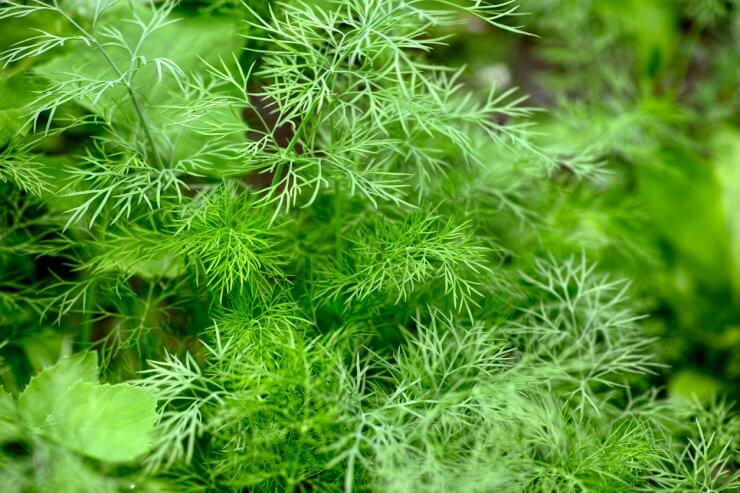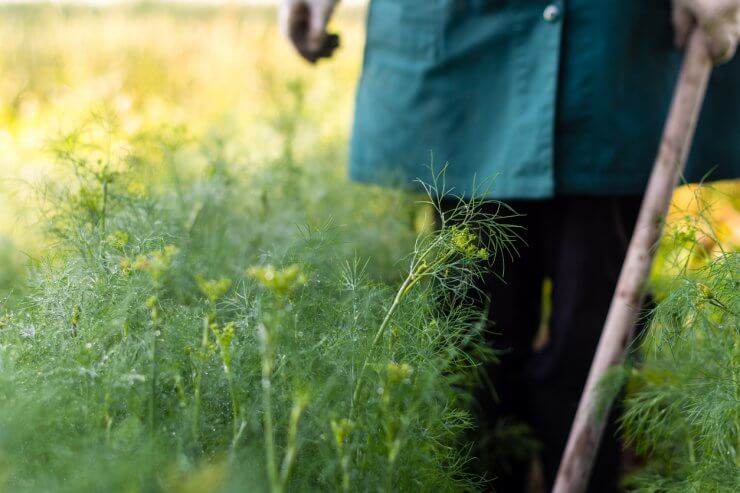
Healthy dill plants
Water
Once your dill has settled in—whether it’s in a container, a raised bed, or open ground—consistency is key when it comes to watering. Dill likes moist, but not soggy, soil. The best way to provide this is by supplementing rainwater with a long, deep drink of water every couple of weeks.
How often you water depends not just on the rainfall, but the climate: dill growing in arid climates will need watering more often than cooler or more humid regions. It’s important to let the soil go almost—but not completely—dry between watering. This is especially important when you’re tending dill growing in containers—it’s not like they can stretch their roots out in search of more water if they’re parched.
For dill planted in the ground, a long deep watering is the way to go. Overhead sprinkling works well for younger plants, shorter than 24 inches. After that, water at the roots with soaker hoses or use furrow irrigation; this helps to avoid stresses caused by mildew on the seed heads as well as knocking over the stems with strong jets of water.
It’s best to water in the morning, so your plants can soak up that deep drink of water and put it to work growing dill. Of course, if you fall behind in your watering and notice your plants are in serious need of a deep drink, don’t wait until morning. Go get the hose.
Mulch is helpful to help conserve water and deter weeds. Chopped dry leaves or straw keeps the weeds down while containing moisture.
Weeding

Weeding dill
When it comes to weeding around your dill plants, early and often is best. If you’ve used weed-free soil and well-rotted organic matter, and laid down mulch, you shouldn’t have a big weed problem.
Properly preparing your soil is an excellent preventive measure against the emergence of weeds. When you till or cultivate the area where you’ll plant your dill plants, remove weeds and debris. You’ll likely find that the first few weeks after planting are the only time you’ll be pulling up weeds around your plants.
If weeds spring up around your dill plants during the growing season, work the soil around the base of the plants with a hoe—only deep enough to kill the weeds and not damage the plant’s taproot.
Fertilizer
Dill plants are not particularly heavy feeders, but they do appreciate a helping of fertilizer periodically. If you’ve prepared your planting beds with aged compost or manure, you only need to side dress dill two or three times during the growing season with compost tea.
How often do you have to fertilize or water your dill plants? Do you have any particular challenges growing dill? Please tell us your tips for nurturing healthy dill plants.


 Previous
Previous

